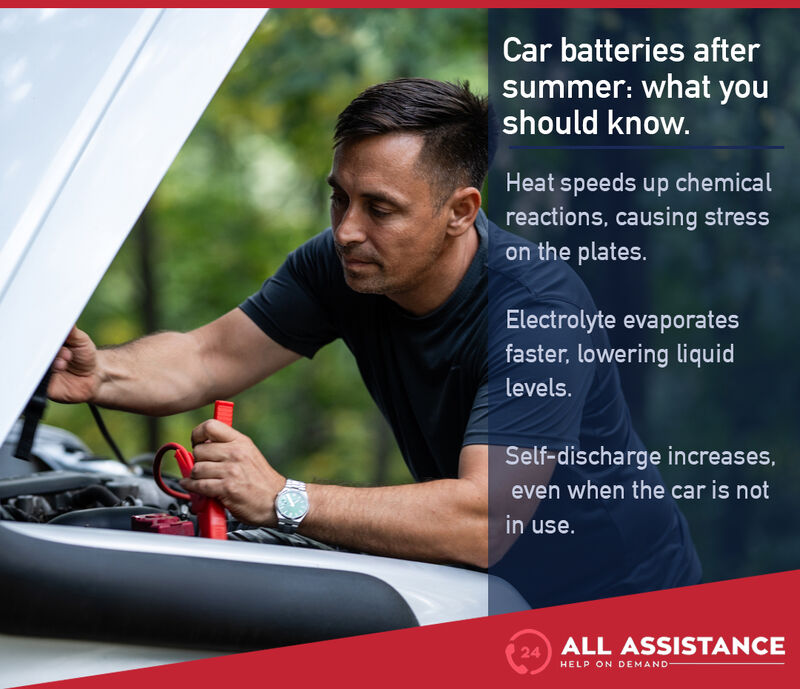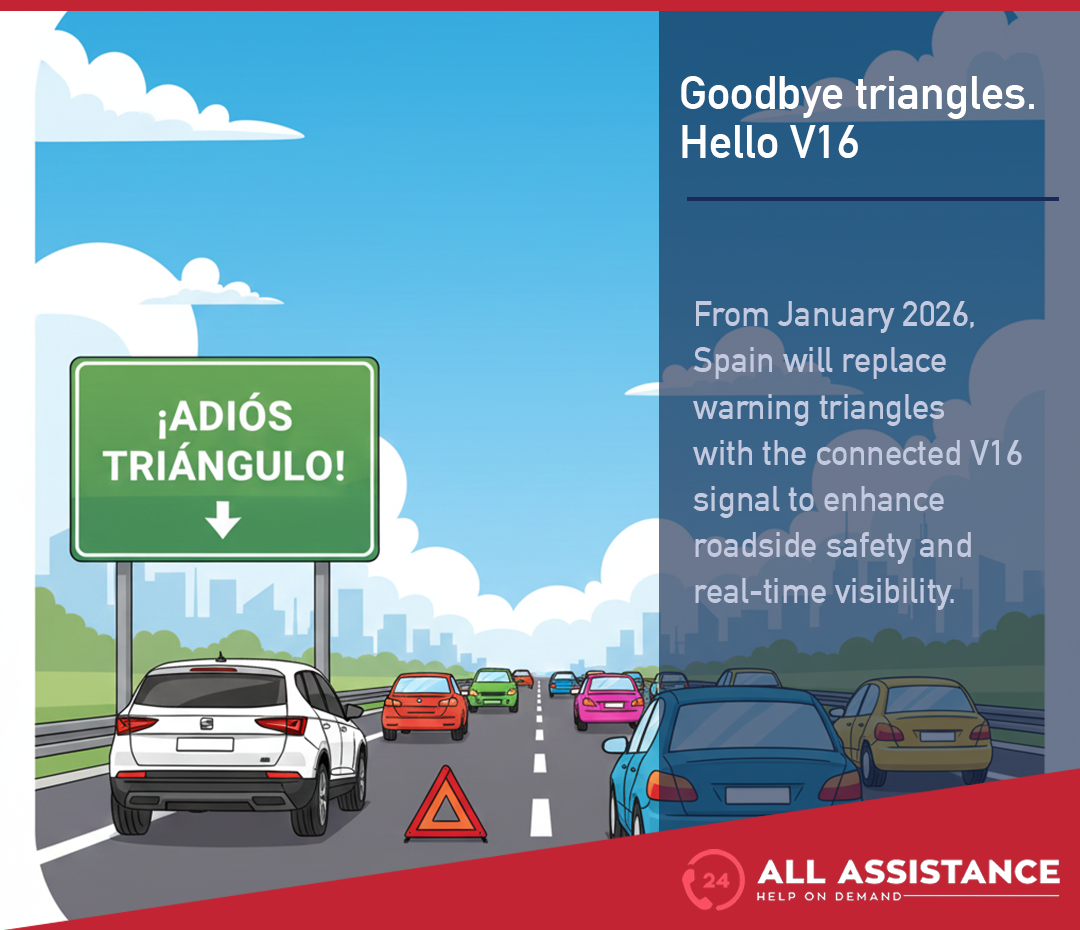Car batteries after summer: what you should know ⚡
Many drivers think battery issues start in winter. The truth? High summer temperatures are just as harmful and can silently shorten a battery’s life.
How heat damages your battery
☀️ Heat speeds up chemical reactions, causing stress on the plates.
☀️ Electrolyte evaporates faster, lowering liquid levels.
☀️ Self-discharge increases, even when the car is not in use.
☀️ Internal separators can weaken, risking short circuits.
Why problems show up in autumn and winter
During summer, these effects often go unnoticed. But when colder weather arrives and the engine demands more power, weak batteries reveal their limits. That’s why testing and recharging all year round is the smartest move.
Tips to extend battery life
🔋 Avoid too many short trips — the alternator may not recharge fully.
🔋 Switch off non-essential accessories while driving.
🔋 Use a charger or maintainer if the car is parked for long periods.
🔋 Drive at least once a month for a longer trip to keep it “trained.”
Jump-starting is not always the answer:
Modern cars can be sensitive to incorrect use of cables. Always follow the owner’s manual before attempting a restart.⚡
12V batteries in EVs still essential:
Even in electric and hybrid cars, the 12V battery plays a critical role in powering electronics and connectivity. A fully charged traction battery won’t help if the 12V is dead.⚡
Regular maintenance in summer and autumn ensures safety, reliability, and peace of mind when the cold season begins.







